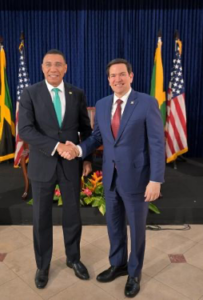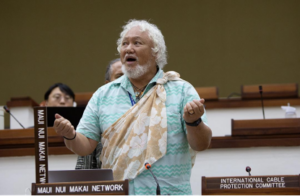A cyber security expert who spoke to the Freedom Come Rain believes that there is a hidden agenda behind the Data Protection Act. He noted that it will not be difficult for governments to weaponise citizens information for their own benefit.
“This is not about making the country better or making you better. What this looks like to me, is data mining,” he said before adding, “They are just trying to get all of the information they can get; that’s what it looks like to me.”
Pastor Joseph Buckland believes the government crafted the Data Protection Act as another way to source information on citizens, because several Jamaicans are sceptical of the National Identification System (NIDS).
“In order for NIDS to be effectively implemented according to the government, the law requires that there be a Data Protection Act, to ensure that people’s confidential information are protected in the National Identification System, and so that is another reason for the data protection act, to ensure that the NIDS can be implimented,” said the pastor.
“There is going to be a centralisation of this digital data, in my opinion, perhaps the United Nations, and anyone anywhere said to be against international regulations may be regarded as terrorists,” said the pastor who noted that Christians in some other countries are being branded terrorists because they refuse to follow the unGodly agendas of their governments.
St. Ann pastor, Peter Chambers was arrested in 2021 after predicting the death of Prime Minister Andrew Holness. He was arrested by a team from the Counter-Terrorism and Organized Crime Investigation Branch (CTOC) after speaking out against the government’s restrictions to reduce the spread of COVID-19.
Although the Data Protect Act guarantees a person’s right to privacy, the cyber security expert says it is likely that those who refuse to give their data will face social exclusion.
“Businesses can say to you, ‘well, this is a requirement, if you do not give it then we can’t do business or you can’t get this product,’” he explained. The same might apply for those seeking employment and refuse to submit required data.
In a bid to increase compliance, government officials have been visiting churches to get them onboard. One congregant told the Freedom Come Rain that her church has been sensitizing members about the need for the Act, but she has bluntly told them, they will not be getting any additional information from her.
“From what I picked up on my job, they are aware that persons are opposed to the NIDS and what is happening is that different institutions are requesting more detailed information from businesses and from individuals than before,” said the church member who works in the financial sector.
She said she felt troubled in her spirit when the matter came up for discussion at her church. She intends to protect her data by not sharing it.
“I just wished the Body of Christ would not sit back and roll over and refuse to speak and when one of us do so in the churches we attend, it is like we are troublemakers,” she said.
Churches currently obtain personal data from employees, members, persons who apply for jobs and contract workers. Apart from standard data such as name and address, churches collect other data such as donations, banking and transaction information, voluntary activities of members, wedding and funeral information as well as CCTV footage of those who visit their premises.
Information Commissioner, Celia Barclay has said that the Office of the Information Commissioner is now accepting online registrations for data controllers through its portal.
“We are trying to move towards the digital economy that Jamaica wants to create, and we aim to make this process as simple and as easy as possible to have our business functions automated and to ensure that our records are kept in electronic form. And so, for that reason, an online application must be made,” Barclay told the Jamaica Information Service in June.






